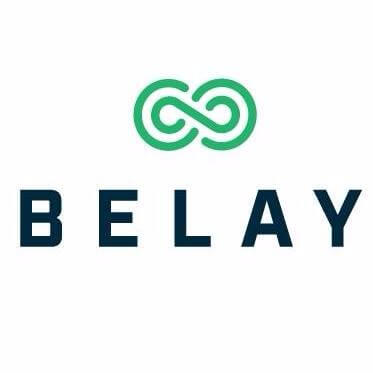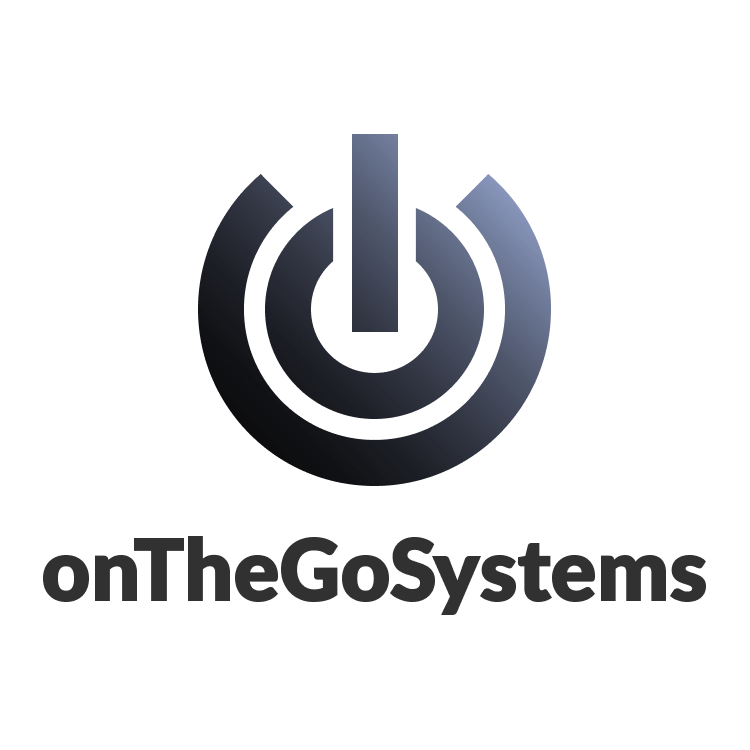How did you implement a remote work policy?
It was pretty organic. The first few people we hired were from our customer support forum. They were people who already used 1Password and loved it enough to help us make it better and help other people who were struggling with aspects of it. From there, the team continued to grow remotely by word of mouth for a while, until we started posting jobs more officially in 2017.
Organically, we are growing and learning as we grow how to continually make this a great place to work and how to remove (or make better) obstacles in remote working. We are always looking at industry best practices.
We did not implement a remote work policy. Building a distributed company was our intention from the start. Dr. Chris Waters (my co-founder) and I wanted to leverage the lessons we learned from our 20-plus years working in Silicon Valley. We knew that we could build a wildly successful product and company remotely — if we hired the right people.
While American Express has had a number of virtual roles for some time, our focused effort to expand the remote customer care team began about a half decade ago.
I would say more organically to begin with. We had employees volunteer to work remote to test it out. Then it became more formal over a period of time when we began to see the benefits to the company and our employees. At that time, the position was converted to a remote-only position.
From its inception, Appirio has had one headquarters with the rest of our United States employees working remotely. Globally, we have six offices: Indianapolis, San Francisco, Tokyo, Jaipur, Dublin, and London. Each of our global offices has varying levels of remote work flexibility. However, the remote work flexibility has been in place from day one of Appirio. We provide the tools and technology that allow our team to work anywhere in the world!
We intentionally started a virtual staffing agency with the intent of showing the world how this can be done, and by living it ourselves.
We started the company as remote, so there is no other way for us!
Formally. All hires are brought into the company under the premise that they work remotely.
Whenever possible, remote work should be an organic extension of the company’s personality and outlook.
It started very organically; we tried lots of different things and would discuss what we liked and disliked the most. From there, we were able to develop basic outlines which we used on new employees. With their feedback, we were able to develop an easy-to-understand and efficient way of communicating with each other and others. At that point, we implemented a much more formal exercise for getting new hires acquainted with remote work best practices.
Our remote work policy was implemented formally in 2009 via Dell’s Connected Workplace program. This program enables eligible team members to work remotely, at variable hours or in other flexible capacities that fulfill the needs of both their job and their lifestyle. Before Connected Workplace, flexibility at Dell was informal, with most arrangements being made one-on-one between team members and managers.
The idea of building a remote company wasn’t something we explicitly discussed at the start – it simply grew out of necessity. One of the challenges when you start out as a bootstrapped company with an unknown brand and little cash on hand is access to talent. Hiring a remote team was the best solution to this challenge and we’ve stuck with it since day one.
As with most things at Envato, what started organically has become a little more formal now that the Envato team is around 280. Formally acknowledging guidelines also ensures everyone knows what’s available to them! In the HR team we make sure all our guidelines (the word ‘policy’ sounds a bit too formal for us!) are written in plain English. And there is usually wiggle room for personal circumstances too. We like to trial things first, see if they work, get some feedback, iterate and then try it again. We copied this idea from our amazing product delivery teams!
Since we’ve always done it, it’s been a bit of both. It’s dynamic and continuous improvement is a must. We must adapt to the best communication platforms and consistently be growing our team’s EQ. It’s who we are, so when someone new comes on board we need to help them adapt easily and comfortably into this “world” if it’s new to them.
Definitely organically. FlexProfessionals is owned by three moms. We started by working remotely ourselves, when it was just the three of us. Our remote workforce grew from there. We do have policies and structures in place, and we make a concerted effort to regularly review and tweak them. They need to work in a business environment that is constantly growing and evolving.
We put certain formal rules in place, but the culture of our remote teams continues to organically form. We pay close attention to our remotes, get a lot of feedback, and form policies based on what they need/want. For example – as our teams have grown, we’ve added communication coaching & tools and changed our offsite and structure to better suit teams’ needs.
I’d definitely say it came about organically as a result of both the way the company grew and the nature of our product. We’ve always tried to be clear and explicit about our policies around remote work though, because it’s really important to us that everyone’s expectations are on the same page.
It started organically. We didn’t know how it was going to be, but every week we add important information to our GitLab Handbook. We like to have everything there and to keep it clear for everybody. We want it to be great, so we fix and improve it all the time.
It started day 1. We were an early company to be fully remote (6 years ago), so it is just so natural for us now. We started with almost no ground rules, but over time we’ve added in some tools and standards so that expectations and communications are clear.
As we transitioned from being a traditional print marketing company to an all-digital firm (in 2006), we simply began hiring remotely. And once we began hiring remotely, we treated our existing Philadelphia staff the same, allowing them to work 100 percent from home, though they do have the option to go into the office if they wish.
Greenback has been 100% remote since the beginning. We have learned so much over the years about how to manage a remote workforce and feel that we have created a successful, positive and productive environment in which our team members can thrive. Our hiring process is very stringent and in-depth to ensure that the team members we hire have the right skillset, as well as the outstanding communication and technological skills to be productive in a remote environment.
Organically. It was a part of the vision from the inception. Yes, there would be a headquarters, but there was a clear understanding that most of the team would be remote (with the option of coming to Boston as well).
Right from the start we allowed most people to choose. There are a group of us now that tend to work in the L.A. studio most days but they all do it out of preference and work at home some days. A few roles in production need to be on-site but only during filming.
There is no ‘policy’ at ICUC, it is simply a reality for us, we have no office building. At ICUC, remote work is part of our DNA.
We were 100% remote for the first 7 or 8 years of the company. How we work remotely has changed considerably as we’ve grown from a small team of just a handful of employees to the larger and separate teams we have today.
How we work and communicate is something we certainly will continue to work on. We’ve gone through cycles of relying heavily on email, to regular skypes and hangouts, too, as we are at the moment, regular real-time chat communication via ‘Slack’.
Organically for the most part. We have some structure in place, but our company is results-driven – so if you prefer to work from 9pm-6am, and you turn out exceptional work – more power to you!
Totally organically. We did what felt right, we learned from our mistakes, and we continue to evolve by listening to what our staff needs.
It was a decision I made early on and decided to roll with it. I was already living the lifestyle when I started Jungle Scout so it just naturally worked out that way.
Initially our policies for managing our remote staff developed organically, then later we developed a more cohesive policy.
Remote work was natural for us. As we continue to grow our available workspace inventory we can work from more places in the world. We have office options across the U.S., Canada, and Australia, so our team can work around the globe all within the LiquidSpace network.
We have been a virtual environment from day one, so it was a decision that was organically reinforced by its own success.
We’ve been a remote company since the beginning, so I guess that makes it organic. When we hire team members, it’s always with the understanding that we’re 100% distributed and your office is wherever you park your laptop.
We have always worked remotely. In fact as a start-up not having to fund an office was financially very helpful.
Our company quite literally started complete remote, so it was part of our formation.
Given that remote work is the fundamental underpinning of Omni Interactions, it’s at the core of every business decision and process we undertake. The beauty of it being fundamental to us is that we never have to implement a remote work policy—it’s built into our core.
Our company started as a remote working organisation from day 1, so we didn’t need to implement a remote work policy.
Organically. We trust people to get their work done when they need to do it.
Because we have always been mostly remote-based it wasn’t necessarily a policy that had to be implemented – it’s just how we have always worked and even though we have a small headquarters it’s important that everyone keeps a 100% remote mentality so that our culture doesn’t develop a sense of “us vs. them” (meaning office workers vs. remote workers).
We realized fairly quickly that we had to have a set of tools that could stand on its own in the absence of daily in-person interaction. We developed a simple, yet powerful, dashboard that provides real-time visibility for everyone in the company. It includes information like who is currently working on what team, company priorities, team priorities, project due dates, weekly status updates etc. In addition, we use a number of great commercial productivity tools such as Slack for real-time communication, Github for code management, Hangouts and Zoom for video conferencing and Trello for project prioritization. Whether your team is distributed or local, it is so important to implement the right tools for clear communication, visibility and context setting. Having everyone sit in the same room won’t necessarily solve the communication challenge for you.
We’ve been distributed from day one. Our only requirements are that our team be available for our morning scrum, that they track both their billable and unbillable time in Toggl (our time tracking software), that they are available for the projects they are a part of, and that each team member is available for a weekly one-on-one with either my partner or me at a time that works for each of us.
Our remote work policy has evolved organically. As we built our core team and internal processes, our policies have been created based on the work-life schedules of the team members.
Well, I think we have a huge advantage of being remote-first or remote only—whatever you call it, remote is natural to us. So, I’d say it happened very organically. Now, we’re 50 people and might soon make a huge expansion. This is only possible as we’re remote.
Although certain policies have evolved as the company has grown and our needs have changed, we have always had remote workers and have always known that clear and formal policies are important for protecting both the company and our remote workforce. In addition, each remote worker completes an extensive company training course upon joining our team to ensure that they are adequately trained and able to fully leverage the Scribendi platform to reap the benefits of this business model.
We use Slack to communicate throughout the day; Google Hangouts and Skype for group calls and demos; Jira for spring planning, executing, and bug tracking; and Trello for general product and marketing planning. Except for sprint planning, we don’t implement any strict policies and work mostly organically.
Organically. We implemented policies where we felt we could do better and from lessons learned over time. Team understanding (why we need it) and buy-in (how it’s going to help you) are necessary for implementing any work policy, remote or otherwise! Our team is very opinionated and highly conscious of inefficiencies so we’re quickly able to identify what works and what doesn’t.
Skillcrush has been a remote company from the start and because remote work aligns so well with our mission and lifestyle, it was a no-brainer! Here at Skillcrush, our entire team is scattered all over the world from Finland to Florida, and we have the freedom to work from wherever we choose—whether that’s at home with our dogs, at our favorite coffee shop or coworking space, or even while paragliding in Romania (one of our designers once logged into a team meeting doing just that!).

One of Skillcrush’s designers paragliding into a team meeting from her village in Romania!
That’s the beauty of remote work. It’s not one-size-fits-all. It’s about what fits YOU best.
First of all: confidence. Relations have to be built on trust. Each team that is working for a client takes responsibility for all the issues: financial stuff, agreements, customer relations, etc. It wouldn’t make sense to have one person managing all these projects. When one of the developer teams needs to buy iPads for everyone to do the job well, why force them to ask the board for permission. They know best what they need for their project.
Furthermore we have a wiki. We put all the rules we have in the company. There’s a starter page for everyone to read through. And it just describes all the basics and how we are running. That’s a good thing to have. And when there are things we just can’t agree upon, we vote. And the result becomes a law. And there’s a special place for such laws in our wiki. But the laws become official only when we feel the need to make something official, because it itches us not to have The Way Of Doing something. So formality grows organically 😉
It started organically, but we have formalized things along the way. Mostly we expect people to be effective communicators and get stuff done.
It was completely organic. We noticed that we had more success with remote workers than local talent so we stopped caring about the proximity of our employees and focused on hiring the best people regardless of location. We don’t have a formal remote work policy. Our attitude is simply to try to hire the best possible people and accepting remote candidates let’s us do that.
Organically. As we grew and worked through this work model and faced different challenges and overcame those challenges, we shaped up a better and a stronger communication pattern that forms as our work policy and also acts as a special ingredient of our secret sauce.
It was entirely organic. The biggest challenge as we’ve grown has been not letting the trappings of traditional office policies creep in. For instance, once we hit about 60 people we considered whether to implement a vacation, sick leave or PTO policy. But we realized that it made no sense to track what hours people weren’t working, when we don’t track what hours they do work. We focus entirely on what people produce.
We make a call about whether a position is virtual as we shape the job description. While the majority of our jobs are flexible location, meaning staff can work from a home office every day, anywhere in the United States, we do require certain staff work on-site: some central staff who need to interact face-to-face in our central office (such as our office manager and software developers), and some program staff, who work from client offices. Having staff embedded in district offices helps us better understand the challenges our clients face and provides us with real-time insights into how our work is playing out on the ground.
We expect all staff – virtual or on-site – to follow the personnel policies outlined in our employee handbook, which outlines our typical work hours, computer policies, and so on. Yet we generally approach working from home flexibly, providing advice and resources but giving staff the leeway to figure out what works best for them. To help new staff adjust to that flexibility, we provide guidance to ensure that staff who work from home have the support they need to excel (from practical considerations, like a home office budget, to opportunities for connection, like our Work from Home Affinity Group).
As we’ve grown, we’ve evolved our systems to better support our virtual employees. For instance, when we became too large for everyone to stay connected via email and phone on a regular basis, we invested in an interactive intranet – our wiki – for folks to share news and updates on their work, find resources, connect and collaborate.
We knew that in order for it to work, everybody in the team had to become “remote” workers and adopt the new mindset. So the switch from the old system to the remote work affected everybody, even those who are based in Tallinn, Estonia and choose to come to the office every day – they also needed to adopt the reality of remote team.
My co-founder Kerry takes all the credit for setting up our amazing guidelines, policies, compensation packages and benefits programs. She worked closely with a Seattle based HR expert who has helped guide us in all aspects of HR. Creating remote policy is not that different from traditional brick-and-mortar HR policy. We have had to set up things like 401k, medical, dental, PTO and so on.
We run a fairly relaxed environment and we have core hours from 10am Pacific time to 1pm. That ensures the team is guaranteed to all be online at the same time for a few hours every day.
Besides some basic guidelines and policies, we rely on being able to trust our team members will do a great job. “Trust” is a core value of ours – if you’re able to trust your teammate to do a great job and not have to constantly check in on how they’re doing, everything else almost takes care of itself.
Our earlier years had one office, in addition to a remote team. But eventually the office became irrelevant and, if anything, a way to make us less productive. So moving to 100% remote was organic, but ultimately the best decision for achieving our goals of maximum productivity and being able to help change lives across the world.
































































































